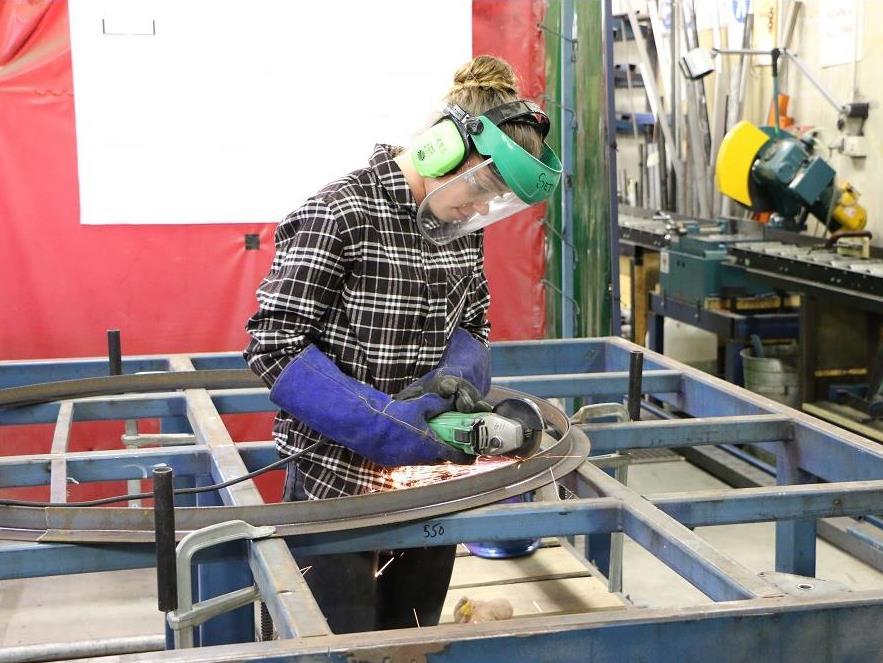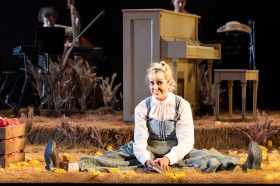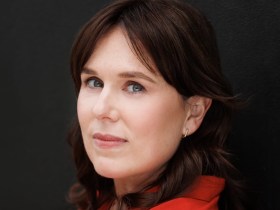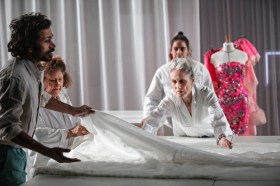Image: supplied.
A career in the performing arts goes well beyond working as an actor. Live performance, events and film require skilled teams of people behind the scenes; artisans who spend months, sometimes years, planning, designing and building the sets and props.
Often, these people are drawn to the performing arts from a young age. They may have studied both drama and design technology throughout high school, and will have an analytical and a creative mind, well suited to the engineering problem-solving that is increasingly relevant to the arts and essential for careers in staging and props-making.
Nicholas Day, Head of Staging at NIDA, said: ‘Practitioners in staging are the people who create the environments within which performances take place, and that can be across theatre, film, and rock and roll – there are a broad range of events and exhibitions.’
This breadth is reflected in NIDA’s Bachelor of Fine Arts (Staging) course, where students learn everything from the fabrication of timber and metal sets to coding and automation. Day said the course was designed through consultation with the arts sector. ‘They were looking for technicians who come with a very broad quiver of skills, someone who could not only push a button and program a bit of automation, but who could also work on the mechanics and the fabrication.’
In first year, students learn set construction and the fundamentals of stage machinery. ‘We teach them stage rigging and mechanics. So winches, hydraulic rams, all the ways we drag things around on the stage and make things fly through the air,’ added Day.
‘By the end of second year, they are able to specify a particular winch or hydraulic ram, or whatever it is they might need to actuate a stage effect, and then they are able to connect the electronics of those to a computer and code some software to make it do what they want it to do.
‘It is a very hands-on course. For every hour they spend looking at a blackboard, they spend a couple of hours in the workshop actually playing around with gear.’
Find out more about NIDA’s Bachelor of Fine Arts (Staging)
Similarly hands-on is a career in prop-making, which can involve everything from building and painting sets to designing functional pieces, events and performances.
‘Even though prop-making is a very specific profession, it requires a huge range of skills and knowledge,’ said Marcelo Zavala-Baeza, Head of Properties and Objects at NIDA.
‘A director or designer might say “I need a table that is very thin looking and clean, but I need eight people to be able to jump on top of it,” and then we have to come up with a creative solution by analysing the problem and covering all the parameters, calculating the weight of every actor and then working out the materials we are going to use for that particular object or prop.’
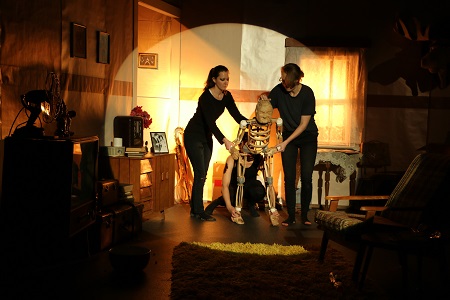
Image: supplied
To come up with creative and structural solutions such as this, those makers need to have an analytical mind. But the creativity comes from analysing the situation.
Zavala-Baeza said NIDA’s Bachelor of Fine Arts (Properties and Objects) is selective. ‘Typically we have 20 plus applicants and we take about six of them. Often these are people who already have a specific skill set they developed during school or they are people who have a degree and want to reinvent themselves.’
‘We select who we think will be the best for the dynamic in the group that we are taking. During this three-year course, students spend a lot of time together and we want a balance of characteristics, attitudes and personalities – that is why the face-to-face interviews are important to us. It is not like a course where you have 150 students and you don’t see them much. In here, you spend a lot of time with your peers sharing ideas and doing group work, while also making time to work individually.’
Find out more about NIDA’s Bachelor of Fine Arts (Properties and Objects).

